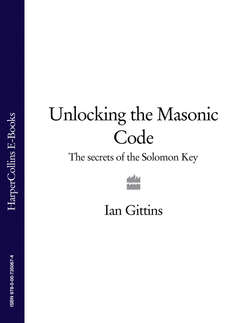Читать книгу Unlocking the Masonic Code: The Secrets of the Solomon Key - Ian Gittins - Страница 17
King Athelstan
ОглавлениеThe grandson of Alfred the Great, King Athelstan (895-939 AD) was the first king of all England. Taking York from the Danes, he also forced the surrender of King Constantine of Scotland, united Britain beneath his command and repelled all invasions. This otherwise little-celebrated historical figure occupies a crucial place in Masonic history.
The Regius Manuscript claims that King Athelstan was a keen supporter of Masonry and in 926 AD, one year after he came to the throne, called the very first Grand Lodge of Masons at York. Appointing his brother Edwin the Lodge Grand Master, he commanded it to convene annually thereafter, and also supported Freemasonry by commissioning a constant stream of new forts, castles and monasteries.
There is no doubt that Freemasonry’s York Rite takes its cue from the Regius Manuscript and the supposed 926 adYork Assembly. It is likely, however, that the document adds a few imaginative flourishes to the actual contribution to Masonry of King Athelstan.
were to govern the stonemasons’ guilds, dividing them into fifteen regulatory ‘articles’ and a further fifteen philosophical ‘points’, and looked to correct ‘defaults’ that Athelstan had noted in Masons’ work standards and general comportment.
The fifteen articles outline the basic requirements and responsibilities of a Master Mason. The first two explain that he should be honest (‘as a judge stand upright’), reliable, and pay his workmen fairly and on time. He should also attend every meeting of his chapter of Masons, unless ‘sickness hath him so strong / That he may not come them among’.
The majority of the articles thereafter deal with the relationship between the Master Mason and the Fellows of the Craft and Entered Apprentices beneath his command. The Mason should ensure that every apprentice is willing and able to study for seven years. He should not recruit a servant, lest his owner should remove him from service of the Craft, nor should he hire or initiate an apprentice who is ‘deformed’ or ‘maimed’ (in 1390, the more politically correct phrase ‘physically challenged’ clearly had yet to enter the lexicon).
The articles further inform the Mason not to recruit thieves, and swiftly to replace any Entered Apprentices who fall short of the Craft’s high standards. The Master Mason should not accept commissions that he knows he cannot fulfil, nor steal work from a fellow Mason. Nor should he withhold any trade secrets from his apprentices, but rather ensure that he ‘the craft ably may know / Wheresoever he go under the sun’.
The Regius Manuscript’s fifteen ‘points’ are of a more general nature, urging the Masons towards serene and contemplative behaviour. The Mason must ‘love God and holy church always / and his master also’, be discreet, treat all men equally and receive his pay and rewards ‘meekly’. He should also be a peace-maker and steer well clear of the ‘foul deadly sin’ of sleeping with a fellow Mason’s wife. He should be a patriot (‘To his liege lord the King…be true to him over all thing’) and, crucially, be willing to swear an oath of his commitment to the Craft before the Master Mason and fellow members.
The Manuscript then veers off into a fable of four Masons who refused to make monuments of false gods at the behest of a Roman emperor and so were martyred (see page 81), before recapping Christian fables such as Noah’s Ark and the Tower of Babel and identifying seven ‘sciences’ in which the civilized Mason should be adept: grammar, dialect, rhetoric, music, astronomy, arithmetic and geometry. The poem ends by reminding the Mason once again of the virtues of truth, honesty and humility.
The Regius Manuscript emphasizes that Middle Ages Masonry had its self-improvement and spiritual aspects, but nevertheless the stonemasons’ guilds remained largely professional organizations-cum-trade unions. However, events at the start of the sixteenth century conspired to ensure that Freemasons would henceforth have far more time on their hands to consider matters of a more abstract, philosophical nature.
The 1500s saw Masonry hit with a devastating triple blow. Firstly, the Renaissance and the Age of Enlightenment meant it was harder for Masons to jealously guard their trade secrets. With the advent of the printing presses, Gothic cathedrals could no longer be seen as God-made-stone via divine powers: instead, the mechanics of the
